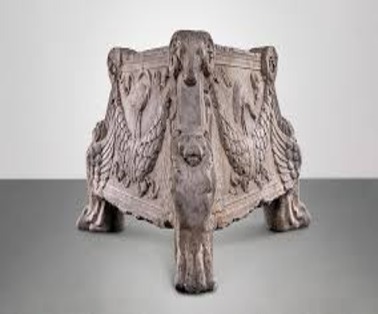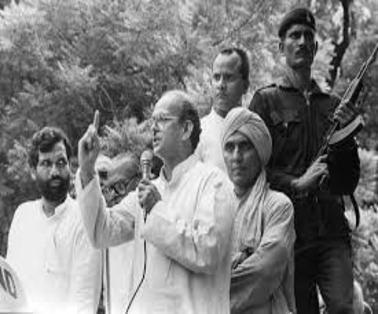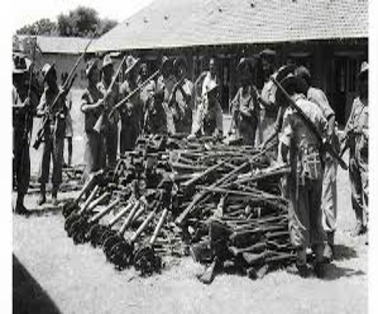The Supreme Court has reaffirmed the right to privacy for election candidates, holding that they need not expose every detail of their personal lives or possessions to voters. This landmark judgment balances transparency with personal dignity under Article 21 of the Constitution.
Key Points of the Right To Privacy Ruling
- A Bench of Justices Aniruddha Bose and Sanjay Kumar said a candidate’s choice to retain his right to privacy on matters which were of no concern to the voters or were irrelevant to his candidature for public office did not amount to a ‘corrupt practice’ under Section 123 of the Representation of People Act, 1951.
- Such non-disclosure would not amount to a “defect of a substantial nature” under Section 36(4) of the 1951 Act.
- Justice Kumar observed there was no compulsion on a candidate to lay his life threadbare for the electorate to prod and scrutinise.
- It is not necessary that a candidate declare every item of movable property unless these items are of such value as to constitute a sizeable asset in itself or reflect upon his candidature, in terms of his lifestyle, and require to be disclosed
- But the Court said every case would turn on its own peculiarities on what would amount to a non-disclosure of assets of a substantial nature. Suppressing information about a collection of expensive watches from voters would be a substantial defect.
The Karikho Kri Case
- The judgment came in a petition filed by Arunachal Pradesh MLA Karikho Kri challenging a Gauhati High Court decision in July last year declaring his election to the 44-Tezu Assembly Constituency of Arunachal Pradesh void
- For not declaring three vehicles as his assets in his affidavit filed in Form No 26 appended to the Conduct of Elections Rules, 1961. Mr. Kri had won the elections on May 23, 2019 as an Independent candidate.
- The vehicles in question were a Kinetic Zing Scooty, a Maruti Omni van used as an ambulance and a TVS Star City motorcycle. The scooter was sold as scrap in 2009. The other two vehicles were also sold.
- Besides, the Court pointed out that the joint and declared worth of Mr. Kri was ₹8,41,33,815 cumulatively. Their total income was worth ₹11,72,91,634.
- Justice Kumar said the declaration of assets by candidates was meant to further democratic participation by citizens and enhance the right to information of the voters so that they could cast their votes rationally and intelligently.
Right to Privacy in India
- The Right to Privacy under Article 21 of the Indian Constitution is interpreted as an intrinsic part of the fundamental right to life and personal liberty.
- Article 21 states that “No person shall be deprived of his life or personal liberty except according to procedure established by law.”
- In the landmark judgment of Justice K.S. Puttaswamy (Retd.) v. Union of India (2017), the Supreme Court explicitly recognized the Right to Privacy as a fundamental right under Article 21.
- The court held that privacy is an essential aspect of personal liberty and dignity, encompassing informational privacy, decisional autonomy, bodily integrity, and spatial privacy.
Representation of People Act, 1951
- The Representation of People Act, 1951 is a key piece of legislation in India that governs the conduct of elections.
- Section 123 of the Representation of People Act, 1951 defines “corrupt practices” to include bribery, undue influence, false information, and promotion of enmity among citizens based on religion, race, caste, etc.
- Undue influence can manifest in various forms, including threats of physical harm, coercion, intimidation, promises of reward or benefit, or exploitation of vulnerabilities.
- Section 123(4) allows disqualification of an elected representative for certain offences, corrupt practices, failure to declare election expenses, or having interests in government contracts or works.
- Section 36(4) in the Act of 1951 mentions that the returning officer shall not reject any nomination paper on the grounds of any defect that is not of a substantial character.
Rights of the Voters in India
The voters have certain rights that are bestowed on them by the Election Commission of India. These rights are safeguarded by the Constitution of the country and are provided to all the citizens of the country
- Right to Know
- The voter has the right to know about the candidates contesting the elections. The voters have the right to get the details of the past records of the candidate (criminal records, if any), financial position of the candidate, their election manifesto, etc.
- Voting rights of NRIs
- The NRIs are those citizens of the country that are not present at their place of residence for reasons of employment or any other reasons but are still eligible to vote in the elections of the country
- Voting rights of Prisoners
- The constitution of India and the guidelines of the Election Commission of India do not permit a person who is imprisoned to vote in the upcoming elections of the country.
- NOTA (Right Not to Vote)
- NOTA or the Right Not to Vote is another right of the voter where the voter participates in the electoral process but does not vote or choose any of the contesting candidates.
- Tendered Voting Rights
- This right can be exercised by a voter when he/she realizes that another person has wrongly voted on their behalf. Such a person will need to provide a valid identity proof to authenticate their voting right and vote on a separate ballot paper as per Election Commission.
- Voting rights of Disabled or Infirm Citizens
- The ECI assists disabled or infirm citizens in casting their votes.
To Download Monthly Current Affairs PDF Click here
Click here to get a free demo
Discover all about CLAT Exam



